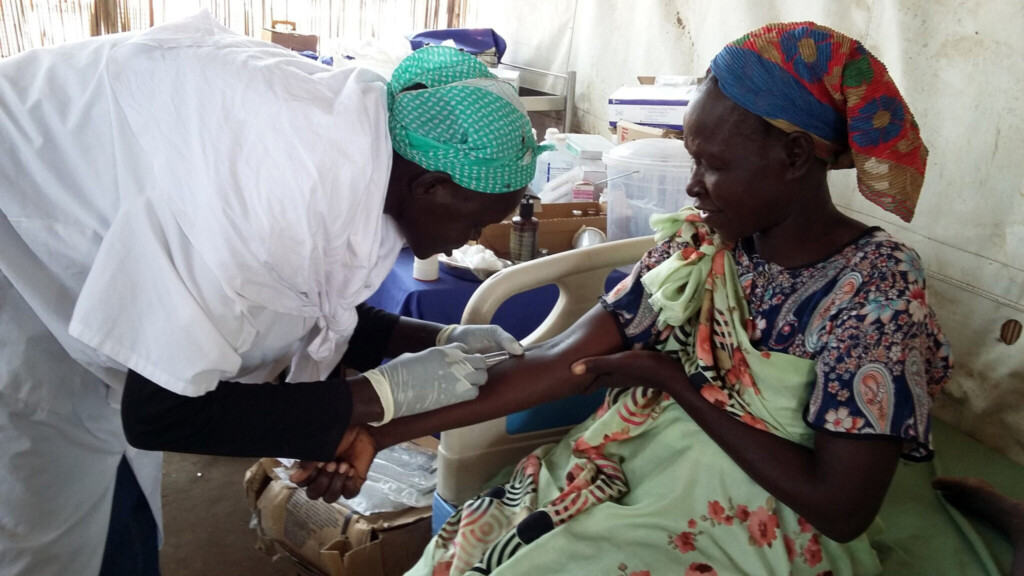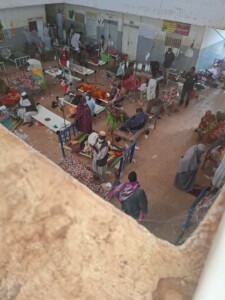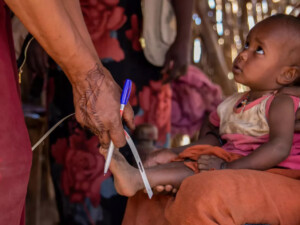Death toll rising in Sudan cholera epidemic

A patient receives treatment in Sudan (File Photo: MSF)
Three people have succumbed to cholera in northern Sudan’s River Nile state, bringing the cumulative death toll from the current epidemic to 14. The state health authorities reported in their daily report issued by the Emergency and Epidemic Control Department yesterday, that River Nile state recorded 87 new cases of cholera, including three deaths. Most of the cases were documented in Atbara, Berber, and Ed Damer.
This brings the cumulative number of cholera cases in the state to 409, while the total number of deaths has reached 14 so far.
According to the official figures, for the first time, the number of infections in Berber locality exceeded that of Atbara, which had recorded the highest infection rate in the past period. Berber recorded 29 cases, followed by Atbara with 28 cases, then Ed Damer with 23 cases, and finally Abu Hamed with seven cases.
The figures show that the total number of patients hospitalised in isolation centres reached 217 cases, including 142 cases in Atbara, 24 cases in each of Ed Damer and Berber, 12 cases in the Shababit area, nine cases in Sidon, and four cases in Abu Hamed.
In a meeting of Sudan’s Federal Emergency Operations Centre last week, leading official Dr Haisam Ibrahim announced an extensive campaign to tackle the cholera epidemic. This includes cooperation with state health ministries, the World Health Organisation, and UNICEF. Detailed daily reports will be prepared to monitor the situation and coordinate efforts.
Dr Mohamed El Jeid disclosed that federal teams are being dispatched to Khashm El Girba and Wad El Helew in Kassala, with plans to send a third team to El Gedaref.
As reported by Radio Dabanga last week, official sources within Sudan’s Ministry of Health confirmed eight deaths, and 128 new cases of cholera in Kassala and El Gedaref. The Emergency Room indicated in its meeting today that four deaths occurred in each state. The number of infections in Kassala state reached 87 cases, and in El Gedaref 41 cases.
The sources said that the cumulative number of cases in Kassala has risen to more than 700, indicating that there are more than 70 cases in the isolation ward in Kassala city, with deaths continuing in the ward.
Cholera is an acute diarrhoeal infection caused by eating or drinking food or water that is contaminated with the bacterium Vibrio cholerae. Cholera remains a global threat to public health and is an indicator of inequity and lack of social development. Researchers have estimated that every year, there are 1.3 to 4.0 million cases of cholera, and 21 000 to 143 000 deaths worldwide due to the infection.
The extremely serious disease can cause severe acute watery diarrhoea with severe dehydration. It takes between 12 hours and five days for a person to show symptoms after consuming contaminated food or water. Cholera affects both children and adults and can kill within hours if untreated.
Most people infected with Vibrio cholerae do not develop any symptoms, although the bacteria are present in their faeces for 1-10 days after infection. This means the bacteria are shed back into the environment, potentially infecting other people.
(Source: WHO)











 and then
and then